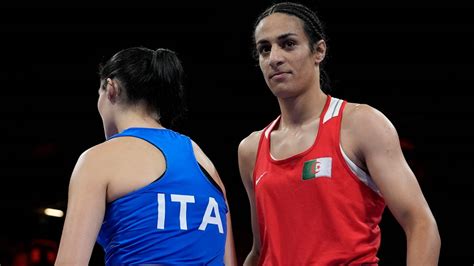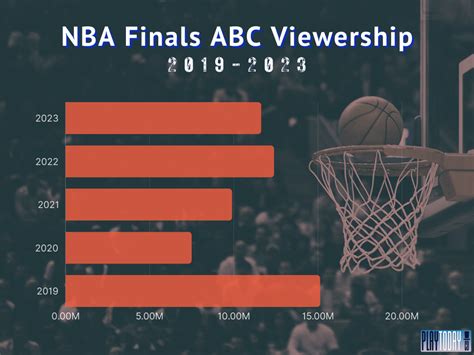
Imane Khelif, a leading Algerian boxer, has been barred from competing in the Women’s World Boxing Championships in New Delhi, India, sparking outrage and accusations of bias against the International Boxing Association (IBA). The IBA cited eligibility criteria violations as the reason for the ban, leaving Khelif and the Algerian delegation stunned and prompting allegations of a targeted decision.
The contentious decision to exclude Khelif, a world championship silver medalist, has ignited a firestorm of controversy, with many questioning the timing and rationale behind the IBA’s action. According to the initial report, the IBA claimed Khelif did not meet the unspecified eligibility requirements, but provided no further clarification. The Algerian Boxing Federation has vehemently protested the decision, labeling it “scandalous” and an attempt to undermine Khelif’s chances at the competition. This incident has further strained the already tense relationship between national boxing federations and the IBA, which has been under scrutiny for its governance and financial stability. The ban has not only impacted Khelif’s aspirations but also cast a shadow over the integrity of the tournament itself.
The specifics of the eligibility criteria that Khelif allegedly violated remain vague, adding to the confusion and fueling speculation about the underlying motives. This lack of transparency has only intensified the criticism directed at the IBA, with many observers pointing to the organization’s controversial leadership and history of questionable decisions. The incident comes at a sensitive time for boxing, as its status as an Olympic sport is under review due to concerns about governance and financial transparency.
The Algerian Boxing Federation has vowed to fight the decision and is exploring all possible avenues for appeal. They maintain that Khelif meets all the necessary requirements and that the ban is unjustified. The federation has also accused the IBA of acting in bad faith, suggesting that the decision may be politically motivated. The controversy surrounding Khelif’s ban is likely to continue to escalate, further damaging the IBA’s reputation and raising serious questions about the fairness and transparency of international boxing competitions.
Background and Context:
Imane Khelif is a prominent figure in women’s boxing, known for her skill, determination, and success in international competitions. Her silver medal at a previous world championship established her as a serious contender in her weight class, and she was considered one of Algeria’s top athletes. The Women’s World Boxing Championships are a major event on the boxing calendar, attracting top competitors from around the world. The tournament offers crucial ranking points and serves as a platform for boxers to showcase their talents and pursue their Olympic dreams.
The International Boxing Association (IBA), formerly known as AIBA, has faced numerous challenges in recent years. The organization has been plagued by allegations of corruption, mismanagement, and judging controversies. These issues have led to strained relationships with national boxing federations and the International Olympic Committee (IOC). The IOC has repeatedly warned the IBA about the need for reforms and has threatened to remove boxing from the Olympic program if these concerns are not addressed.
The IOC’s concerns about the IBA’s governance and financial stability have cast a long shadow over the sport. The IOC has taken unprecedented steps to distance itself from the IBA, including stripping the organization of its recognition and organizing the boxing tournament at the Tokyo Olympics in 2021 itself. The IOC has also expressed concerns about the integrity of judging and refereeing at IBA-sanctioned events.
The controversy surrounding Imane Khelif’s ban highlights the ongoing problems within the IBA and underscores the need for urgent reforms. The lack of transparency and the allegations of bias have further eroded trust in the organization and raised serious questions about its ability to govern the sport fairly. The incident also serves as a reminder of the importance of protecting athletes’ rights and ensuring that all boxers have a fair opportunity to compete.
Detailed Account of the Incident:
The news of Imane Khelif’s ban broke just days before the start of the Women’s World Boxing Championships in New Delhi. The Algerian delegation received official notification from the IBA stating that Khelif was ineligible to compete due to a violation of the organization’s eligibility criteria. The notification provided no specific details about the nature of the violation, leaving the Algerian officials in the dark.
According to sources within the Algerian Boxing Federation, Khelif had undergone all the necessary medical examinations and had met all the required qualifications for the tournament. The federation officials were shocked and dismayed by the IBA’s decision, which they viewed as completely unjustified. They immediately contacted the IBA seeking clarification and requesting a review of the decision.
The IBA responded by reiterating that Khelif did not meet the eligibility criteria but refused to provide any further details. This lack of transparency only fueled the suspicions of the Algerian officials, who began to suspect that the decision was politically motivated. They pointed to the IBA’s history of controversial decisions and the ongoing tensions between the organization and national boxing federations as evidence of potential bias.
The Algerian Boxing Federation has launched a formal appeal against the IBA’s decision, demanding that Khelif be reinstated to the tournament. They have also contacted the IOC and other international sports organizations seeking their support. The federation is determined to fight for Khelif’s rights and to ensure that she is given a fair opportunity to compete.
Reactions and Responses:
The news of Imane Khelif’s ban has generated widespread condemnation from boxing fans, athletes, and officials around the world. Many have expressed outrage at the IBA’s decision and have voiced their support for Khelif. Social media platforms have been flooded with messages of solidarity and calls for the IBA to reverse its decision.
Several national boxing federations have also expressed their concerns about the incident, calling for greater transparency and accountability within the IBA. Some federations have even threatened to boycott IBA-sanctioned events if the organization does not address the concerns about governance and fairness.
The IOC has also taken note of the controversy surrounding Khelif’s ban. The IOC has reiterated its concerns about the IBA’s governance and has warned that it will continue to monitor the situation closely. The IOC has made it clear that it will not tolerate any actions that undermine the integrity of the sport.
Impact on Imane Khelif:
The ban has had a devastating impact on Imane Khelif. She had been training for months in preparation for the Women’s World Boxing Championships and was considered a strong contender for a medal. The ban has not only deprived her of the opportunity to compete but has also damaged her reputation and her chances of qualifying for the Olympics.
Khelif has expressed her disappointment and frustration with the IBA’s decision. She has stated that she is innocent of any wrongdoing and that she has been unfairly targeted. She has vowed to continue fighting for her rights and to clear her name.
“I am heartbroken and devastated by this decision,” Khelif said in a statement. “I have worked so hard to prepare for this tournament, and I feel like I have been robbed of my dream. I will not give up, and I will continue to fight for justice.”
Analysis of the IBA’s Actions:
The IBA’s decision to ban Imane Khelif raises serious questions about the organization’s governance and its commitment to fairness and transparency. The lack of specific details about the alleged violation of eligibility criteria has fueled suspicions of bias and has eroded trust in the organization.
The timing of the ban, just days before the start of the Women’s World Boxing Championships, is also highly suspicious. It suggests that the IBA may have been deliberately trying to undermine Khelif’s chances of competing.
The IBA’s actions are particularly concerning given the organization’s history of controversial decisions and its strained relationship with the IOC. The IOC has repeatedly warned the IBA about the need for reforms and has threatened to remove boxing from the Olympic program if these concerns are not addressed.
The controversy surrounding Khelif’s ban is likely to further damage the IBA’s reputation and raise serious questions about its ability to govern the sport fairly. The incident also serves as a reminder of the importance of protecting athletes’ rights and ensuring that all boxers have a fair opportunity to compete.
The ambiguity surrounding the eligibility criteria leaves room for interpretation and potential manipulation. Without clear and objective standards, the IBA can selectively enforce the rules and target athletes for political reasons. This lack of transparency undermines the integrity of the sport and creates an environment of uncertainty and mistrust.
The Broader Implications for Boxing:
The Imane Khelif controversy is not an isolated incident but rather a symptom of deeper problems within the sport of boxing. The IBA’s governance issues, financial instability, and judging controversies have cast a long shadow over the sport and have threatened its future.
The IOC’s concerns about the IBA have led to unprecedented steps, including stripping the organization of its recognition and organizing the boxing tournament at the Tokyo Olympics itself. The IOC has made it clear that it will not tolerate any actions that undermine the integrity of the sport.
The future of boxing as an Olympic sport is now in jeopardy. The IOC has warned that it will remove boxing from the Olympic program if the IBA does not address the concerns about governance and fairness. The Imane Khelif controversy only adds to the pressure on the IBA to reform its practices and restore trust in the sport.
The situation demands a comprehensive overhaul of the IBA’s governance structure, including increased transparency, independent oversight, and a commitment to fair and objective decision-making. The organization must also address the concerns about judging and refereeing controversies by implementing stricter training and evaluation standards.
The Role of National Federations:
National boxing federations have a crucial role to play in promoting good governance and protecting athletes’ rights. They must hold the IBA accountable for its actions and demand greater transparency and fairness. National federations should also work together to develop a unified approach to addressing the challenges facing the sport.
By working together, national federations can exert pressure on the IBA to reform its practices and restore trust in the sport. They can also advocate for the interests of their athletes and ensure that they have a fair opportunity to compete.
The Imane Khelif controversy is a wake-up call for the boxing community. It is a reminder that the sport is at a crossroads and that urgent action is needed to address the challenges facing it. By working together, national federations, athletes, and officials can help to ensure that boxing has a bright future.
Possible Scenarios and Outcomes:
Several scenarios could unfold in the coming weeks and months regarding the Imane Khelif case and the broader issues within the IBA.
- Reversal of the Ban: The IBA could reverse its decision and reinstate Khelif to the Women’s World Boxing Championships. This would require the IBA to provide a clear explanation for its initial decision and to demonstrate that Khelif meets all the necessary eligibility requirements. This scenario is unlikely given the IBA’s stance and lack of transparency.
- Appeal to the IOC or CAS: The Algerian Boxing Federation could appeal the IBA’s decision to the IOC or the Court of Arbitration for Sport (CAS). These bodies could review the IBA’s decision and potentially overturn it if they find that it was unjustified. This is a more probable path, but success isn’t guaranteed.
- Boycott of IBA Events: National boxing federations could boycott IBA-sanctioned events in protest of the organization’s governance and decision-making. This would put pressure on the IBA to reform its practices and restore trust in the sport. A widespread boycott is possible, but requires significant coordination and willingness from various national bodies.
- Further IOC Sanctions: The IOC could impose further sanctions on the IBA, including stripping the organization of its recognition and removing boxing from the Olympic program. This would have a devastating impact on the sport and would jeopardize the future of boxing as an Olympic event. This is a serious threat that looms over the IBA’s actions.
- Internal Reforms within the IBA: The IBA could undertake internal reforms to address the concerns about governance, financial stability, and judging controversies. This would require a commitment to transparency, independent oversight, and fair decision-making. This would be the most positive outcome, but it depends on the IBA’s willingness to change.
Conclusion:
The Imane Khelif ban has exposed the deep-seated problems within the International Boxing Association (IBA). The lack of transparency, allegations of bias, and the potential for political interference have raised serious questions about the organization’s ability to govern the sport fairly. The incident has also highlighted the urgent need for reforms to protect athletes’ rights and ensure that all boxers have a fair opportunity to compete. The future of boxing as an Olympic sport hangs in the balance, and the IBA must take immediate action to address the concerns and restore trust in the sport. The controversy underscores the fragile state of international boxing governance and the crucial need for transparency and fairness in all competitive decisions. The impact on Khelif’s career is significant, and the broader implications for the sport’s integrity are undeniable.
Frequently Asked Questions (FAQ):
1. Why was Imane Khelif banned from the Women’s World Boxing Championships?
The International Boxing Association (IBA) stated that Imane Khelif was banned due to a violation of the organization’s eligibility criteria. However, the IBA has not provided specific details about the nature of the violation, leading to controversy and accusations of bias.
2. What has been the reaction to Khelif’s ban?
The ban has generated widespread condemnation from boxing fans, athletes, and officials around the world. Many have expressed outrage at the IBA’s decision and have voiced their support for Khelif. The Algerian Boxing Federation has labeled the decision “scandalous” and is appealing the ban.
3. What are the concerns about the International Boxing Association (IBA)?
The IBA has faced numerous challenges in recent years, including allegations of corruption, mismanagement, and judging controversies. The International Olympic Committee (IOC) has repeatedly warned the IBA about the need for reforms and has threatened to remove boxing from the Olympic program if these concerns are not addressed.
4. What is the International Olympic Committee’s (IOC) stance on the IBA?
The IOC has expressed serious concerns about the IBA’s governance, financial stability, and the integrity of judging and refereeing at IBA-sanctioned events. The IOC has taken unprecedented steps to distance itself from the IBA, including stripping the organization of its recognition and organizing the boxing tournament at the Tokyo Olympics in 2021 itself.
5. What are the possible outcomes of this situation?
Possible outcomes include the IBA reversing the ban, an appeal to the IOC or the Court of Arbitration for Sport (CAS), a boycott of IBA events by national boxing federations, further sanctions from the IOC, or internal reforms within the IBA. The future of boxing as an Olympic sport is at stake.
Additional Points and Expanded Context:
The Imane Khelif case highlights a recurring theme in international sports governance: the tension between sporting organizations and individual athletes, particularly when broader political or administrative issues are at play. Athletes often find themselves caught in the crossfire of these disputes, with their careers and aspirations jeopardized by decisions that may have little to do with their performance or merit.
The lack of a transparent and easily accessible appeal process within the IBA compounds the problem. When athletes are denied the opportunity to compete based on vague or unsubstantiated claims, they have limited recourse to challenge those decisions effectively. This lack of due process undermines the principles of fairness and equal opportunity that should be at the heart of all sporting competitions.
Moreover, the IBA’s repeated failures to address concerns about judging integrity erode public trust in the fairness of boxing. Judging controversies have plagued the sport for decades, raising suspicions of corruption and bias. Without credible and independent mechanisms to ensure fair scoring, the legitimacy of boxing as a competitive sport is called into question.
The IOC’s increasing scrutiny of the IBA reflects a growing awareness of the need for stronger governance standards within international sporting organizations. The IOC has made it clear that it will not tolerate corruption, mismanagement, or a lack of transparency. By threatening to remove boxing from the Olympic program, the IOC is sending a strong message that these issues must be addressed.
The Imane Khelif controversy also underscores the importance of national boxing federations in advocating for the rights of their athletes. National federations have a responsibility to ensure that their athletes are treated fairly and that they have a fair opportunity to compete. They must also hold international sporting organizations accountable for their actions and demand greater transparency and accountability.
Ultimately, the future of boxing depends on the willingness of the IBA to reform its practices and restore trust in the sport. This requires a fundamental shift in the organization’s culture, with a greater emphasis on transparency, fairness, and athlete welfare. Without such reforms, boxing risks losing its place as a respected and valued Olympic sport.
The controversy comes at a particularly sensitive time for Algerian sport. Algeria has been actively promoting itself as a host for major international sporting events, including the African Games and potentially even the Olympic Games in the future. Incidents like this, where an Algerian athlete feels unfairly treated by an international sporting body, can undermine those efforts and tarnish the country’s reputation as a welcoming and equitable host.
Furthermore, the Imane Khelif case raises broader questions about the role of gender in sports governance. While the IBA has made some efforts to promote gender equality, incidents like this can reinforce the perception that women’s sports are not taken as seriously as men’s sports. It is crucial that international sporting organizations actively work to address gender imbalances and ensure that women athletes are treated with the same respect and fairness as their male counterparts.
The lack of specific details regarding the eligibility violation makes it difficult to assess the validity of the IBA’s claim. Without access to the relevant documentation and information, it is impossible to determine whether the ban was justified or whether it was based on discriminatory or arbitrary grounds. This lack of transparency fuels speculation and undermines the credibility of the IBA.
The Imane Khelif case serves as a reminder of the power imbalances that exist within international sports. Athletes often have limited resources and influence compared to powerful sporting organizations. This can make it difficult for them to challenge unfair decisions or to advocate for their rights effectively. It is essential that athletes have access to independent legal representation and support to ensure that their voices are heard.
The responsibility for resolving this crisis rests with the IBA. The organization must demonstrate a commitment to transparency, fairness, and due process. It must also take concrete steps to address the underlying issues that have led to this controversy. Only through such reforms can the IBA restore trust in the sport of boxing and ensure that athletes like Imane Khelif are given a fair opportunity to compete.









